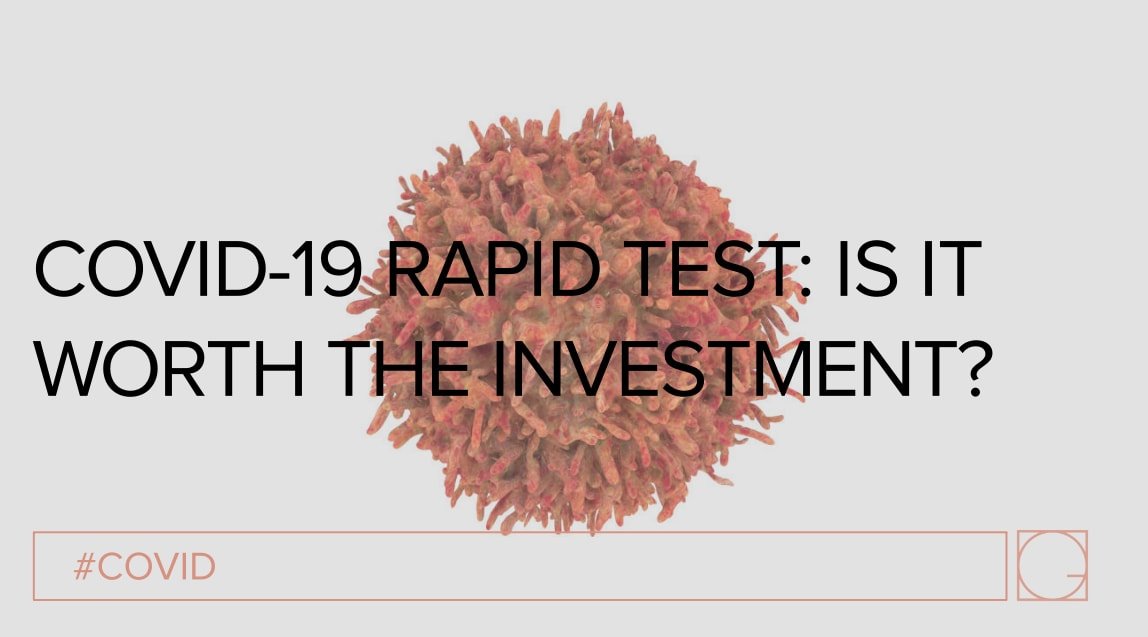Covid 19 Rapid Test: Is It Worth The Investment?
Serology testing for Coronavirus is at increased demand, as people want to know if they had been in contact with the virus and had developed immunity already. Although serology testing helps health organizations like CDC to quantify the number of cases of COVID-19, its use significance in the clinical setting and the interpretation of the results is still unclear. This is a fact even for those cases that may have gone through it without getting sick, known as subclinical cases, and are now recovered, which is calculated to be 25% of the cases.
Serology testing is different from the PCR testing that is being used to identify the presence of viral material, which is found only in people who are currently infected or asymptomatic carriers.
The serology test currently available detects both early marker and late marker, IgM/IgG antibodies in human finger-prick (capillary rapid-test) or venous whole blood, serum, and plasma samples. The last one offered currently by commercial labs like Lab-Corp and Quest. Antibodies can be found in the blood of people who are tested after infection and show that people have had an immune response to the infection.
Most insurance is not currently covering for this test. However, many people are considering getting tested for their own peace of mind as they think that if they are positive, they are safe. However, it is not yet clear if the antibodies that result from SARS-CoV-2 or coronavirus infection will provide someone with immunity from future infection.
More importantly, most tests currently available in the market have limitations, and results are still unreliable, as most of them have not gone through the necessary testing validation steps to guarantee accuracy. This means that the sensitivity and specificity the test announced might not be as good as they state they are, which translates into an increased chance of getting a false result, either positive or negative.
Since demand for this testing has increased, in big part based on the misbelief that if you tested positive you are no longer vulnerable, dozens of serology tests, many of them from other countries, have invaded the market in the United States. Unfortunately, based on what we have learned so far, most of these rapid-test kits are not providing the accuracy that they advertise and have not gone through the appropriate validation process to ensure accuracy, quality, and consistency.
Ensuring that tests are comparable and accurate requires a validation process with access to many patient samples, overseen by a regulatory organization like the Food and Drug Administration (FDA). While such a validation process is for some of those testing under ways, it is unclear when it will be completed which one is the most accurate at this point.
While the CDC has designed and validated a serologic test for broad-based surveillance and research purposes, the test is used to provide the information needed to guide the response to the pandemic and protect the public’s health. In the meantime, commercial laboratories are offering serologic testing and some private healthcare offices and websites are offering rapid-test kits for individuals who want to be tested and get results in less than 15 min. However, the validity of the results from such labs is still questionable and the use of the data from them is in my opinion futile, as the accuracy of the results is not reliable enough to determine any change in behavior or therapy, so I am not currently having my patients undergoing serology testing. A positive that could be falsely positive or negative results that could be a false negative, in my opinion, is not helpful or worthy to invest any energy or money on it. Besides that, if your result comes positive, that does not guarantee that you cannot get infected again. So, the only reason to go through this testing in my opinion at this point as an individual is to feed your need for curiosity. Need that is probably founded on fear, misinformation, media manipulation, and ignorance.
The potential implications of these results for relaxing physical distancing measures for those who have recovered, given the inaccuracies in available tests and the uncertainty about how the test results correlate to immunity, it is simply unjustifiable and irresponsible, potentially leading to a false sense of safety, leading people to place themselves of other at risk. In conclusion, investing in these tests now is a waste of energy and money that should be invested into something more meaningful during these uncertain times.


